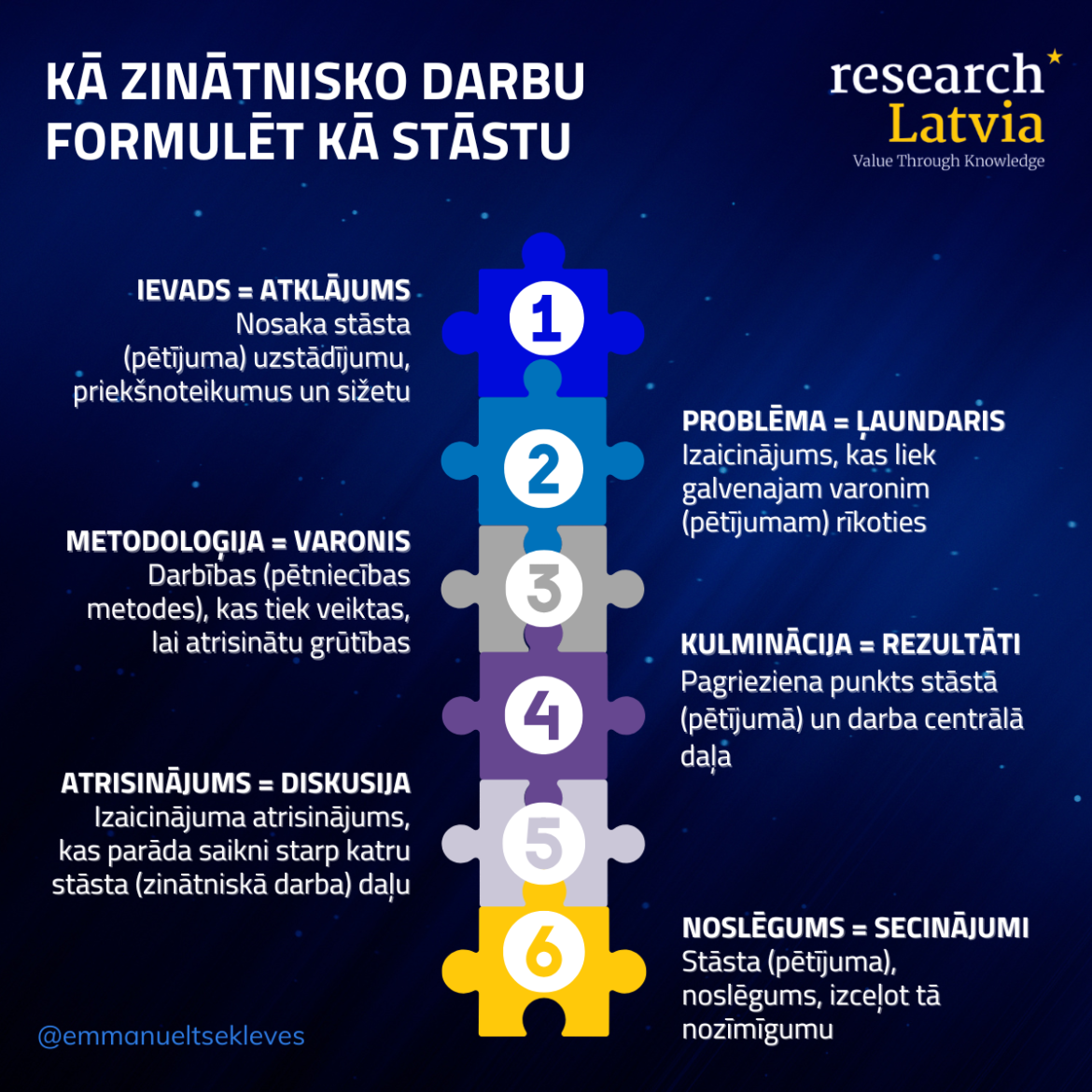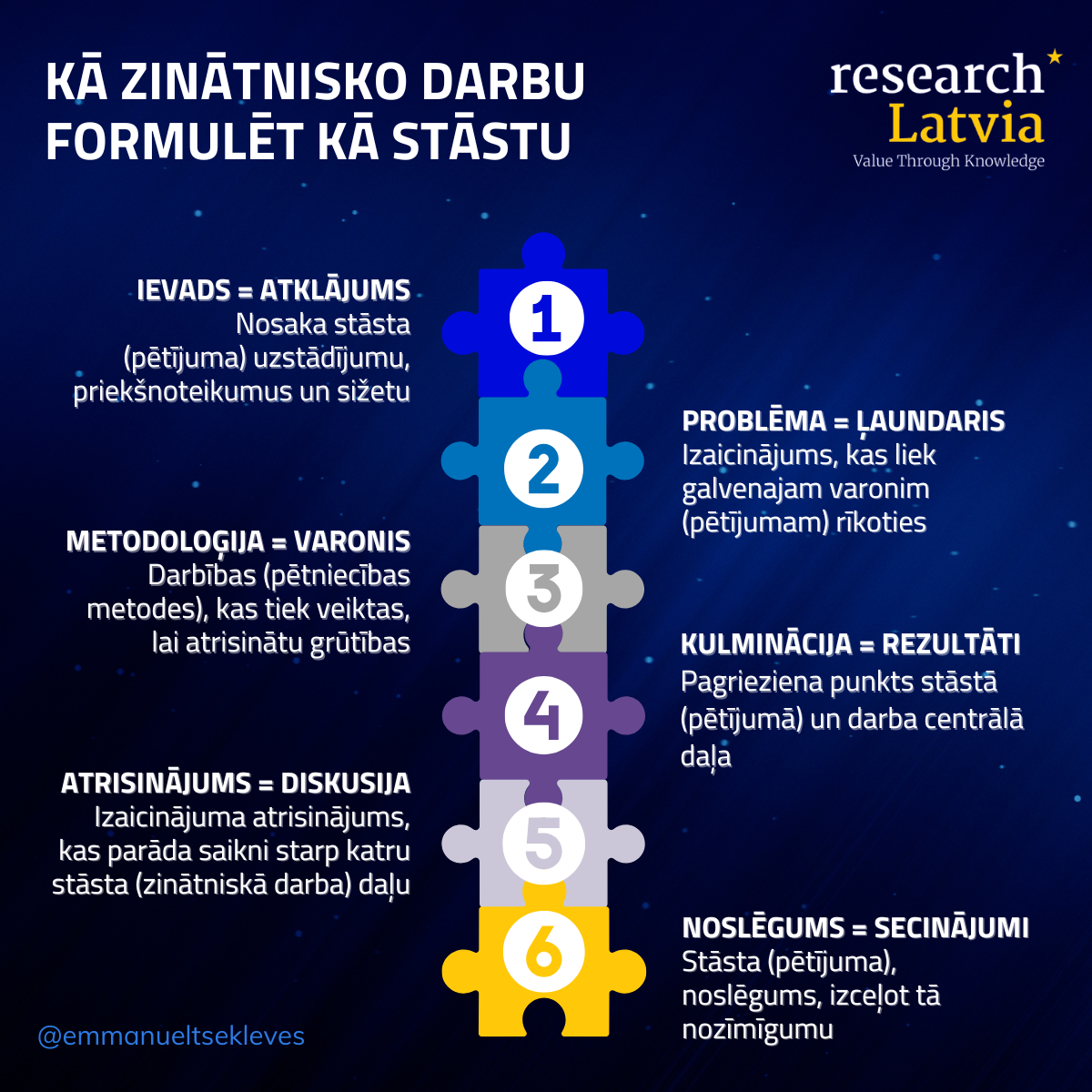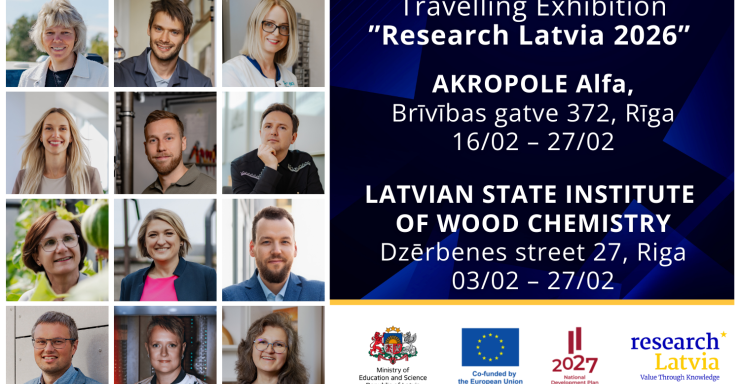In today's world, where there is an overwhelming amount of information and it is becoming increasingly difficult to hold attention, it is important not only what a researcher communicates, but also how the research is presented. In science communication, storytelling is gaining more and more importance – the ability to turn complex facts and data into a clear and engaging narrative.

These six steps will help transform your research into a compelling read that captures and retains the reader's attention.
1. Introduction = Opener, Setting the Scene
Every great story begins with a captivating introduction. This is the moment where the researcher sets the stage – offering context, relevance, and introducing the unknown question the study aims to answer.
2. Problem = Villain, Rising Tension
Every research project addresses a problem. Here, the author can create intrigue – why is this issue important, and why does it need to be solved now?
3. Methodology = Hero
Now the story’s protagonist enters – the method chosen by the author. The researcher should explain how challenges will be overcome, what tools will be used, and why.
4. Results = Climax
This is the moment of revelation. The researcher’s task is to bring new understanding to an underexplored or unclear topic – this is the “wow” moment for the reader.
5. Discussion = Resolution, Everything Comes Together
After the climax, it’s time to reflect. How do the findings fit into the broader scientific context? What do they change? What still needs to be explored?
6. Conclusions = Ending, the Grand Finale
Every story must come to an end – and the best ones leave a lasting impression. In the conclusion, the author can emphasize the significance of the research and invite the reader to think further.
Storytelling in science is a kind of bridge between the researcher and the public. This approach not only helps make scientific work more accessible to a broader audience, but also increases the chances that it will be noticed, read, and appreciated.


